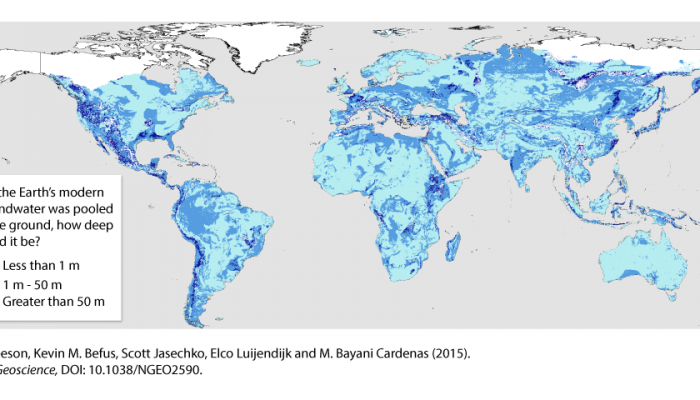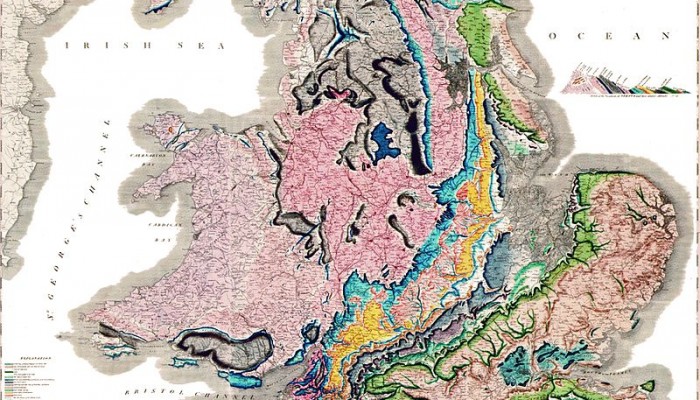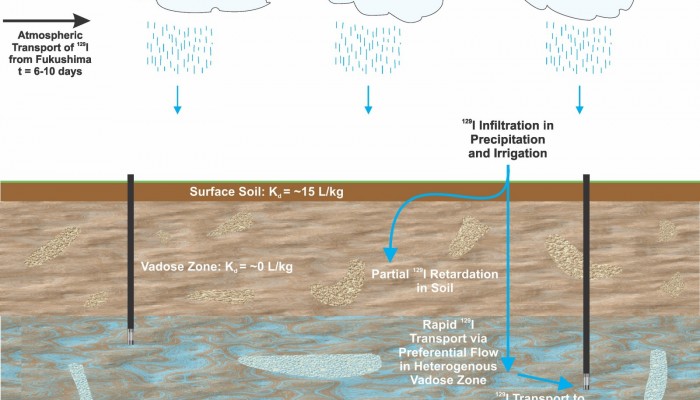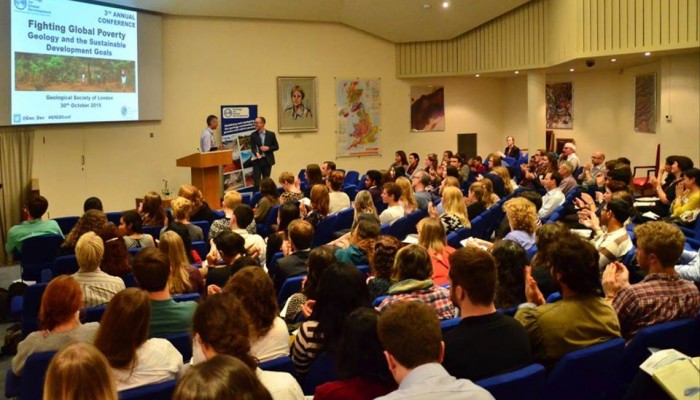It’s been a shamefully long time since I last posted, or carried out a 10 minute interview, for the blog. What better place to find willing recruits and interesting research to showcase than the largest annual gathering of geoscientists: the American Geophysical Union (AGU) Fall Meeting? For those of you who’ve been before, there is no doubt that attending the AGU Fall Meeting is a daunting experi ...[Read More]
WaterUnderground
Water Canada article on our research
Scott Jasechko and I wrote an article for Water Canada about our research on modern groundwater published last fall in Nature Geoscience. We tried desperately to use plain language… how did we do? See WaterCanadaWinter2016
GeoSphere
GeoPoll: Who do you think most deserves the title “Father of Geology?”
It’s been a while since the last geopoll/post. Too long. Life has been busy for me though. I am just concluding an extremely short post-doc at Health Canada’s Canadian Radiological Monitoring Network and am starting a new job at the Canadian Nuclear Safety Commission next week. Suffice to say blogging has sadly slipped a bit lower on my list than I’d like. Plus it’s hockey ...[Read More]
Geology for Global Development
UNISDR Science and Technology Conference on the Implementation of the Sendai Framework for Disaster Risk Reduction 2015-2030
Over the next few days (27-29th January) we’ll be attending the UNISDR Science and Technology Conference on the Implementation of the Sendai Framework for Disaster Risk Reduction (SFDRR) 2015-2030. Agreed in March 2015, this framework aims to substantially ‘reduce disaster risk and losses in lives, livelihoods and health and in the economic, physical, social, cultural and environmental asset ...[Read More]
Geology Jenga
Lake mud can offer a crucial long-term perspective on flooding
The severe flooding that has hit much of northern England during the last few weeks (and northeastern Scotland right now) has generated significant discussion and debate about why floods happen, how often they occur and what we can do about it. The fact is there’s no simple answer to any of these questions: the hydrometeorological cycle is a complex beast and our actions have altered it in m ...[Read More]
Green Tea and Velociraptors
Which palaeontology stories in 2015 captured the public’s imagination?
This was originally posted here! Happy New Year everyone! It’s that time of year when all the summaries of an amazing year of research are coming out, and goodness, what a year it’s been! The folk over at Altmetric have been kind enough to summarise the top 100 articles of 2015, measured by their altmetrics scores – a measure of the social media chatter around articles. All the d ...[Read More]
GeoSphere
Tracking the Fallout and Fate of Fukushima Iodine-129 in Rain and Groundwater
A recently published paper (by myself and colleagues from uOttawa and Environment Canada) investigates the environmental fate of the long lived radioisotope of iodine, 129I, which was released by the Fukushima-Daichii Nuclear Accident (FDNA). Within 6 days of the FDNA 129I concentrations in Vancouver precipitation increased 5-15 times above pre-Fukushima concentrations and then rapidly returned to ...[Read More]
Green Tea and Velociraptors
How to write to your MEPs about European Copyright reform
This was originally posted here. I mentioned in a previous post how important it is for researchers to equip themselves with knowledge about copyright issues (like this), and to become active in the struggle against publishers in retaining fair re-use rights for research. In the European Commission, this has been quite a high-profile debate this year (see here for example), with some preliminary r ...[Read More]
Geology for Global Development
Reviewing Key Development Agreements of 2015
2015 has been a significant year for global development efforts, with major agreements on disaster risk reduction, sustainable development and climate change. The hard work has only just started, with significant work needed over the coming years and decades to deliver real, positive change. Sendai Framework for Disaster Risk Reduction (DRR) 2015-2030 Agreed in March 2015, this framework aims to s ...[Read More]
VolcanicDegassing
The first volcanic eruption to be photographed?
In the digital era of instant communication, breaking news of volcanic eruptions usually arrive image-first. This year, spectacular eruptions of Calbuco (Chile), Fuego (Guatemala) and Etna (Italy) have all made it into the end-of-year ‘top tens‘, in glorious multicolour detail. But when was the first photograph taken that captured one instant during a volcanic eruption? And which was t ...[Read More]







